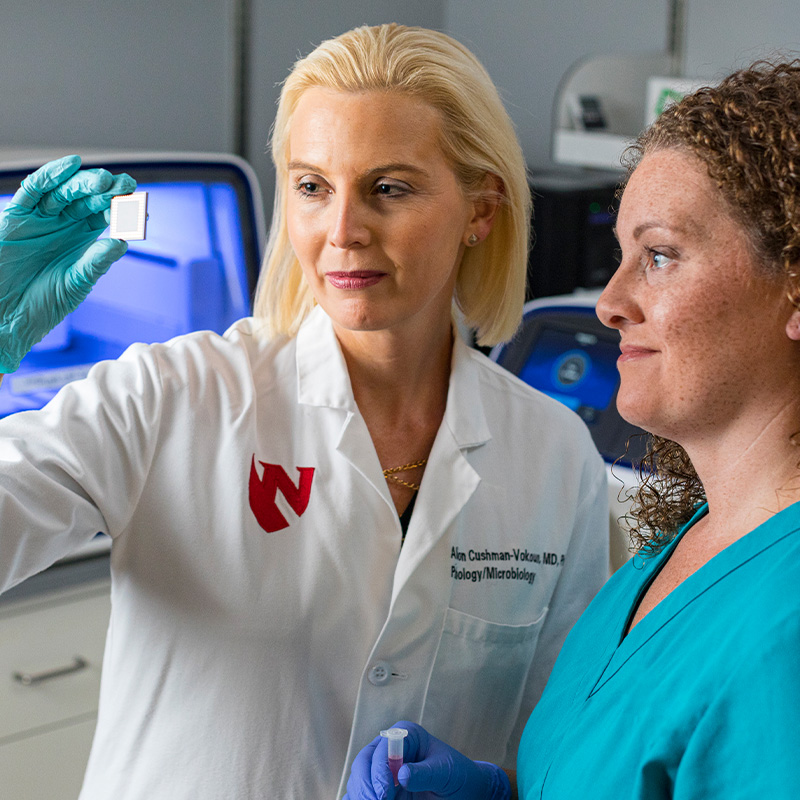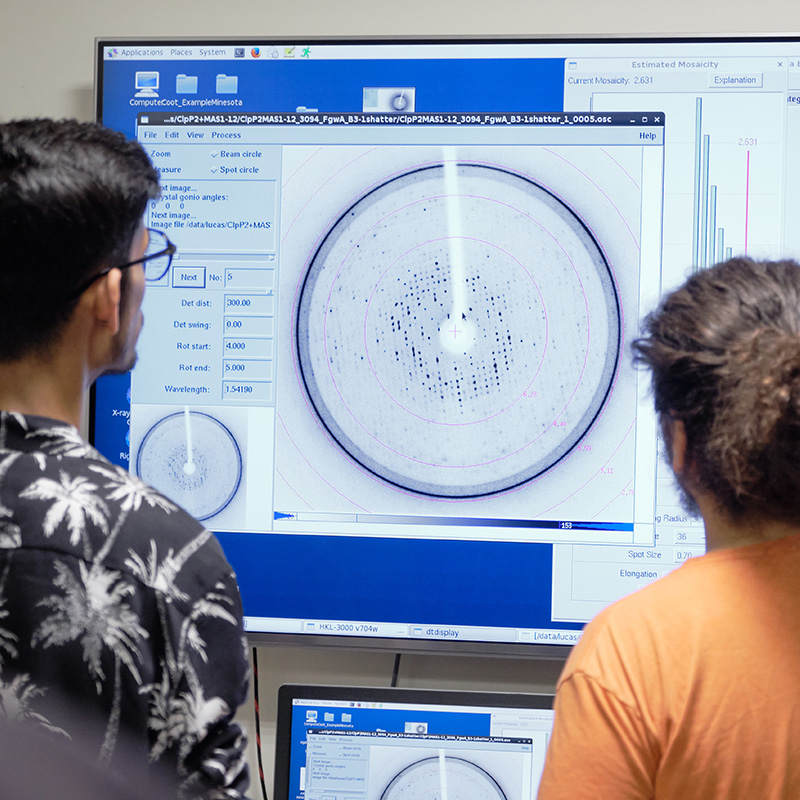
Institutional Training Grant Programs
Get hands-on training solving real-world problems.
When you participate in one of our institutional training grant programs, you receive advanced training on top of your doctoral program requirements. Plus, our training grants provide you with financial support and opportunities for professional and career development — while you contribute to life-saving research.
TIP: Participating in an institutional training grant program can help set you up for future career success, increasing your chances of receiving future fellowships and research awards.
Current Programs
UNMC's institutional training grant programs offer enhanced, specialized experience in addition to your doctoral program coursework.
What are institutional training grants?
Institutional training grants are awards that fund research training for graduate, postdoctoral and early career researchers. Unlike fellowships, which are awarded to individuals, institutional training grants are awarded to the university to support multiple trainees as they advance their skills under the mentorship of experienced faculty members.
Institutional training grants offer you financial support as you progress through your graduate training. They allow you to perform advanced, hands-on research — on top of what you are learning through your doctoral program — and develop a wide variety of skills and connections to advance in your career path.
The main types of institutional training grants at UNMC are T32 awards from the National Institutes of Health. Ruth L. Kirschstein NRSA Training Awards (T32s) provide biomedical, behavioral and clinical research training opportunities to our graduate students. UNMC also has an institutional training grant from the U.S. Department of Education's Graduate Assistance in Areas of National Need (GAANN) program.
If you are unable to work on one of our institutional training grant programs, you may want to consider other external funding opportunities, like NIH fellowships or national scholarships.
Benefits of Participating
Enhanced Research Opportunities
Benefit from specialized programs, workshops and resources for your particular field of study while doing hands-on research to supplement what you learn in your graduate program courses.
Professional Development
Receive advanced training in communication, scientific writing, grant proposal development, project management and leadership skills that can be used throughout your career in academia, industry or other sectors.
Networking and Community Building
Form connections with a cohort of students, faculty members and advisors that you'll carry throughout your career, leading to potential job opportunities and collaborators in the future.
Career Advancement
Stand out in today's competitive scientific landscape, increase your publication opportunities, and strengthen your credibility for future training grant and fellowship funding.
One-on-One and Small-Group Mentoring
Work alongside experts from various disciplines and receive personalized mentoring from world-renowned educators, researchers and peer advisors.
Financial Support
Receive support, such as stipends, tuition, fees or conference travel, so you can concentrate on your research and academic career path.










